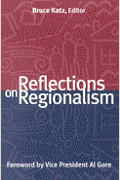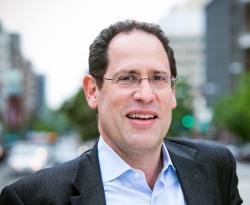Academics, community activists, and politicians have rediscovered regionalism, insisting that regions are critical functional units in a world-wide economy and, just as important, critical functional units in individual American lives. More and more of us travel across city, county, even state borders every morning on our way to work. Our television, radio, and print media rely on a regional marketplace. Our businesses, large and small, depend on suppliers, workers, and customers who rarely reside in a single jurisdiction. The parks, riverfronts, stadiums, and museums we visit draw from, and provide an identity to, an area much larger than a single city. The fumes, gases, chemicals, and run-off that pollute our air and water have no regard for municipal boundaries.
This book lays out a variety of opinions on regionalism, its history and its future. While the essays do not comprise a debate, pro and con, about regionalism, they do provide a wide array of perspectives, based on the authors’ diverse backgrounds and experience. Some contributors have made close academic studies of how regional action occurs, in various states like Minnesota, California, and Oregon; others give an historical account of a particular region like that surrounding New York City; and yet others point out aspects of regionalism–race, especially– that should not be ignored.
Why did past efforts at regional collaboration fall apart? What did regionalist efforts of decades ago leave undone, and what new goals should regionalists set? Without an understanding of these questions, policymakers and advocates may find themselves “reinventing the region.” This book provides an important understanding of how regionalism has played out in the past, how policies shape places, and the possibilities and limits of regional action.
Bruce J. Katz, director of the Brookings Institution Center on Urban and Metropolitan Policy, was formerly chief of staff at the U.S. Department of Housing and Urban Development.
Authors
Foreword by
Bruce Katz is vice president, director of the Metropolitan Policy Program, and Adeline M. and Alfred I. Johnson Chair in Urban and Metropolitan Policy at the Brookings Institution. Al Gore was the 45th Vice President of the United States.


